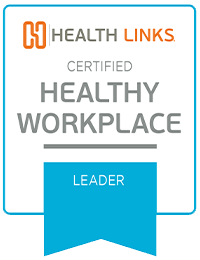
There are plenty of ways to cut corners to get ahead, especially in construction. Nick Williams, Director of Operations at Absolute Caulking and Waterproofing, has no interest in that way of doing business, especially when it comes to cutting corners around safety. Operating in Colorado and Wyoming for over 25 years, Absolute Caulking is a family-owned business dedicated to safely delivering waterproofing systems on time and within budget.
As you can see, Absolute Caulking’s mission statement includes safety; it is foundational to how the company operates. “There are all sorts of unethical ways to do things in construction,” says Nick, “but if you value sustainability, ethics, and responsibility, then you must integrate health and safety into your programs, your company, and your budget. Otherwise, your core values have no teeth or relevance.”
The integration of health and safety is a core value for achieving Total Worker Health®.
Health Links, a Total Worker Health program from the Colorado School of Public Health, partners with employers of all sizes and across all industries to help company leaders put their people first. Through self-assessment, advising, and action planning, Health Links helps organizations identify strengths and growth opportunities in their health and safety programs according to six key, evidence-based benchmarks.
“The Health Links assessment helps you look at your organization in a way that we don't often do, especially in construction,” says Nick. As a team of public health professionals, Health Links understands the importance of employee safety just as keenly as a construction company; but the Health Links team helps companies fill in the gaps in their programs that often are the integration of health and safety.
“Health Links, and the assessment especially, helped us identify key areas of improvement, then provided us with a plan and quarterly analysis to evaluate how we’re doing,” says Nick. “Frankly, it doesn't get much better than that. I don't see how you couldn't get a lot done with that sort of process in place.”
Like most construction companies, Absolute Caulking has always had employee safety programs and protocols. The company also offered baseline health benefits but found that they were under-utilized. Once Absolute Caulking began working with Health Links, the company swiftly realized that part of its struggle in promoting health benefits to employees was communication. The benefits were there, but no one knew about them.
“The Health Links assessment pointed out some glaring neglected items that we hadn't looked at before,” says Nick. “Along with communication about our benefits, a key area for us was promoting a holistic view of mental health as essential to the organization.” Discussing mental health at work is no small task, especially in the construction industry. Absolute Caulking began with destigmatizing, and then normalizing, conversations about mental health.
“The number one thing our Health Links advisor encouraged us to do was have managers and leaders speak honestly about how we have been about impacted by mental health, whether it's personally or through a family member,” Nick adds. “This has made it obvious to everyone in the company that they can be open and honest too.”
Absolute Caulking now has regular email campaigns and in-person training promoting the many mental health resources available to employees. These include an employee assistance program (EAP) with 24/7 mental health services, addiction counseling, and marriage counseling, to name a few. Additionally, mental health check-ins are a standing agenda item at the company’s monthly all-hands meetings.
By normalizing conversations about mental health, Absolute Caulking has become an environment where honest and open discussions happen frequently and organically.
“We’ve made it clear to our employees that we are going to give them tons of resources and make sure they get whatever assistance they need from us,” says Nick. “The Total Worker Health approach has fundamentally transformed our company and I can't wait to see how it works for the years to come.”
Written by Laura Veith, Marketing & Communications Coordinator at Health Links and the Center for Health, Work & Environment based at the Colorado School of Public Health.
.jpg)
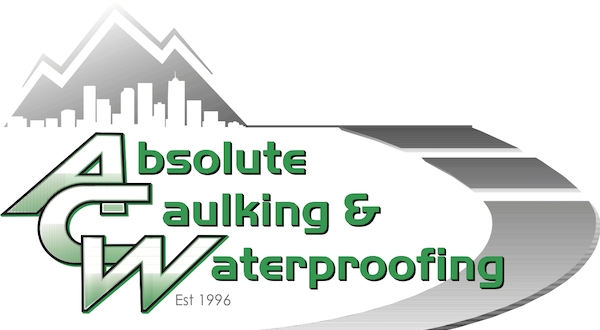
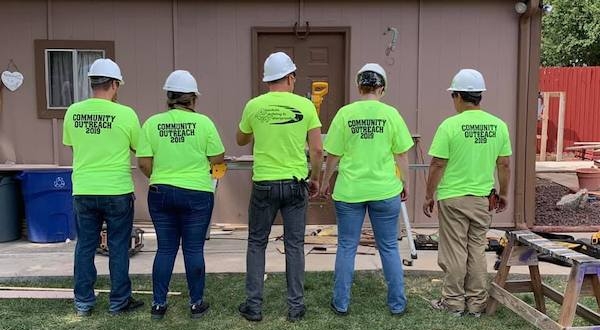
Community outreach event
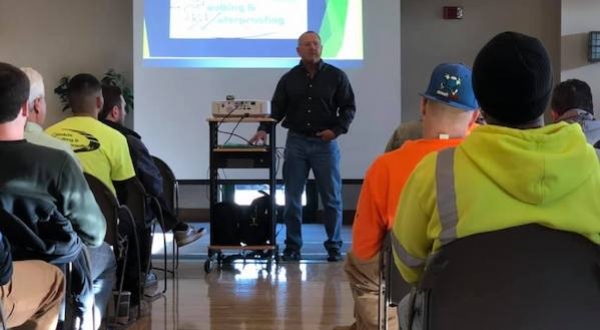
Annual president's address to the company

Women at ACW
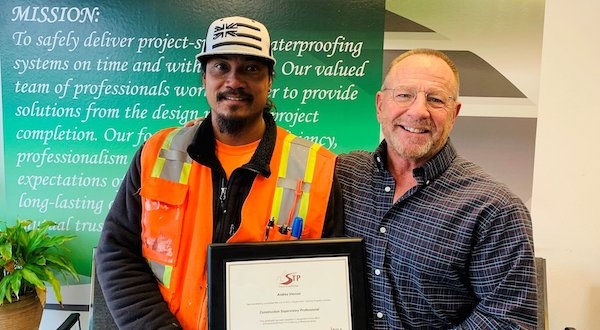
Training and education